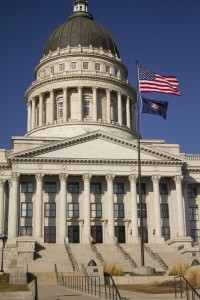SALT LAKE CITY – A bill that would protect free speech on public college campuses in Utah has an uncertain future in this year’s legislative session, but has opened up a debate on the issue.

HB262, would seek to define what constitutes harassment on campus and define specific penalties and procedures for dealing with such cases as they arose. The bill didn’t make it out of its first committee hearing because lawmakers ran out of time to hear it.
Rep. Kim Coleman, the bill’s sponsor had her reasons for wanting to define what constitutes harassment. “The Department of Education put a big heavy fist on harassment side and unconstitutionally restricted free speech. Basically moved to a position that harassment is in the eye of the beholder, now, the Department of Education standard is: I feel harassed, therefore I am harassed,” Coleman said.
This bill would seek to define what constitutes harassment so that campuses would be unable to punish students based upon frivolous charges that do not meet the requirements for harassment.
Currently within state funded colleges, there are many who take a ‘Zero Tolerance’ stance towards harassment, as such any complaint by a student can potentially land a student in trouble, even if the complaint doesn’t meet the normal qualifications of harassment as set forth by the Supreme Court standard.
She predicts that currently around 50 percent of our nation’s public higher educational institutions are in violation of free speech rights.
Some colleges have even taken this to the next level, by outlining “free speech zones.” Where some schools limit free speech to small spaces, small amounts of time. This of course, can have the potential to limit a student’s freedom of speech, disallowing them to speak their minds freely in an area that is otherwise supposed to be intellectually enlightening.
Amid the heavy controversy surrounding the University of Missouri, and the attempts by many campuses nation-wide to limit the freedom of speech and create “safe spaces” for college students on campus, this bill seeks to simply apply the Davis Supreme court ruling that strictly defines what is and is not harassment.
“We live in a country where we value free speech but also be protected from harm, You are free to say what you want, you are not free to harass.” Coleman said.
Coleman said that she hopes the bill will be heard by the committee, but time is growing short because the legislative session ends on March 10.
The bill only would apply to Utah public higher education, therefore privately held BYU would not be affected by the bill.




